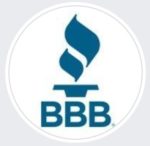
Special to IFN
Scammers are impersonating the IRS to trick taxpayers into sharing personal information, claiming they’re eligible for a $1,400 stimulus check. These fraudulent messages often look official, but they’re part of a phishing scheme designed to steal your sensitive data.
The real IRS has announced that automatic payments will be issued to eligible taxpayers who didn’t claim the Recovery Rebate Credit on their 2021 tax returns. These payments require no action from taxpayers and will be sent automatically by late January 2025. Eligible individuals will also receive a letter from the IRS confirming the payment. This process only applies to taxpayers who filed a 2021 tax return but didn’t claim the credit to which they were entitled.
How the scam works
You receive a text from what appears to be the IRS. The text claims that you’re eligible to receive a $1,400 Economic Impact Payment and that you should provide your personal information. The scammer claims that the amount will be deposited into your bank account or mailed by check within one to two business days. This scam text was reported to BBB Scam Tracker.
This IRS text is a phishing scam. The message contains a fake link that mimics an official IRS website. Clicking it may lead to malware or a fraudulent form asking for personal or financial information. The IRS does not contact taxpayers via text, email, or social media, and they will never request information this way.
How to avoid this scam
● Verify communications: Genuine IRS notices are sent through postal mail, not text messages or emails.
● Avoid clicking links: Never click on links in unsolicited messages. Instead, go directly to IRS.gov for information.
● Be cautious of urgency: Scammers create a sense of urgency to make you act quickly. Take time to confirm claims independently.
● Report the scam: Forward suspicious messages to phishing@irs.gov and report them to BBB.org/ScamTracker.



